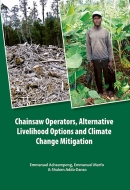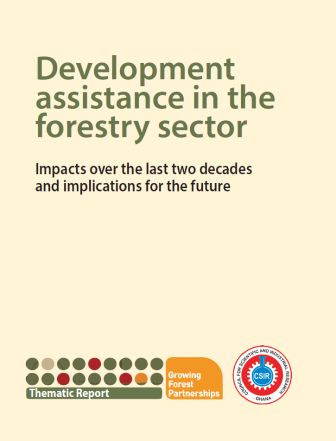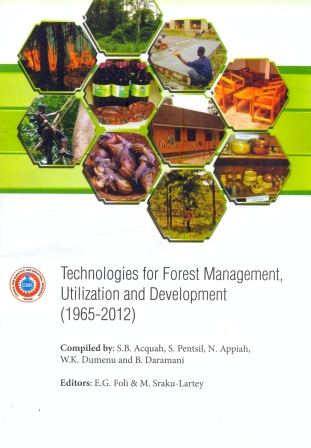Scenario and cost benefit analysis of proposed policy options for the supply of legal timber to the domestic market
Authors:
Gene Birikorang, Emmanuel Marfo, Kyere Boateng and Beatrice Obiri-Darko
 Under the VPA with the European Union, Ghana has made a commitment to ensure that legal timber is not only traded on the export market but on the domestic market as well. Therefore, Ghana is seriously looking for options for supplying legal timber to the domestic market. The EU is supporting the Government through the NREG Programme and a Tropenbos International Ghana led project to develop alternatives to illegal chainsaw milling through a multi-stakeholder dialogue process backed by scientific research. These initiatives have developed the following three policy directions as a first step towards formulating specific strategic options for dealing with the problem:
Under the VPA with the European Union, Ghana has made a commitment to ensure that legal timber is not only traded on the export market but on the domestic market as well. Therefore, Ghana is seriously looking for options for supplying legal timber to the domestic market. The EU is supporting the Government through the NREG Programme and a Tropenbos International Ghana led project to develop alternatives to illegal chainsaw milling through a multi-stakeholder dialogue process backed by scientific research. These initiatives have developed the following three policy directions as a first step towards formulating specific strategic options for dealing with the problem:



 This report was produced within the framework of the EU Chainsaw Milling Project “Supporting the integration of legal and legitimate domestic timber markets into Voluntary Partnership Agreements”. The project aims to find sustainable solutions to the problems associated with the production of lumber for local timber markets by involving all stakeholders in dialogue, information gathering and the development of alternatives to unsustainable chainsaw milling practices. In Ghana, the project is being carried out by Tropenbos International (TBI) in collaboration with the Forestry Research Institute of Ghana (FORIG) and the Forestry Commission (FC).
This report was produced within the framework of the EU Chainsaw Milling Project “Supporting the integration of legal and legitimate domestic timber markets into Voluntary Partnership Agreements”. The project aims to find sustainable solutions to the problems associated with the production of lumber for local timber markets by involving all stakeholders in dialogue, information gathering and the development of alternatives to unsustainable chainsaw milling practices. In Ghana, the project is being carried out by Tropenbos International (TBI) in collaboration with the Forestry Research Institute of Ghana (FORIG) and the Forestry Commission (FC).

